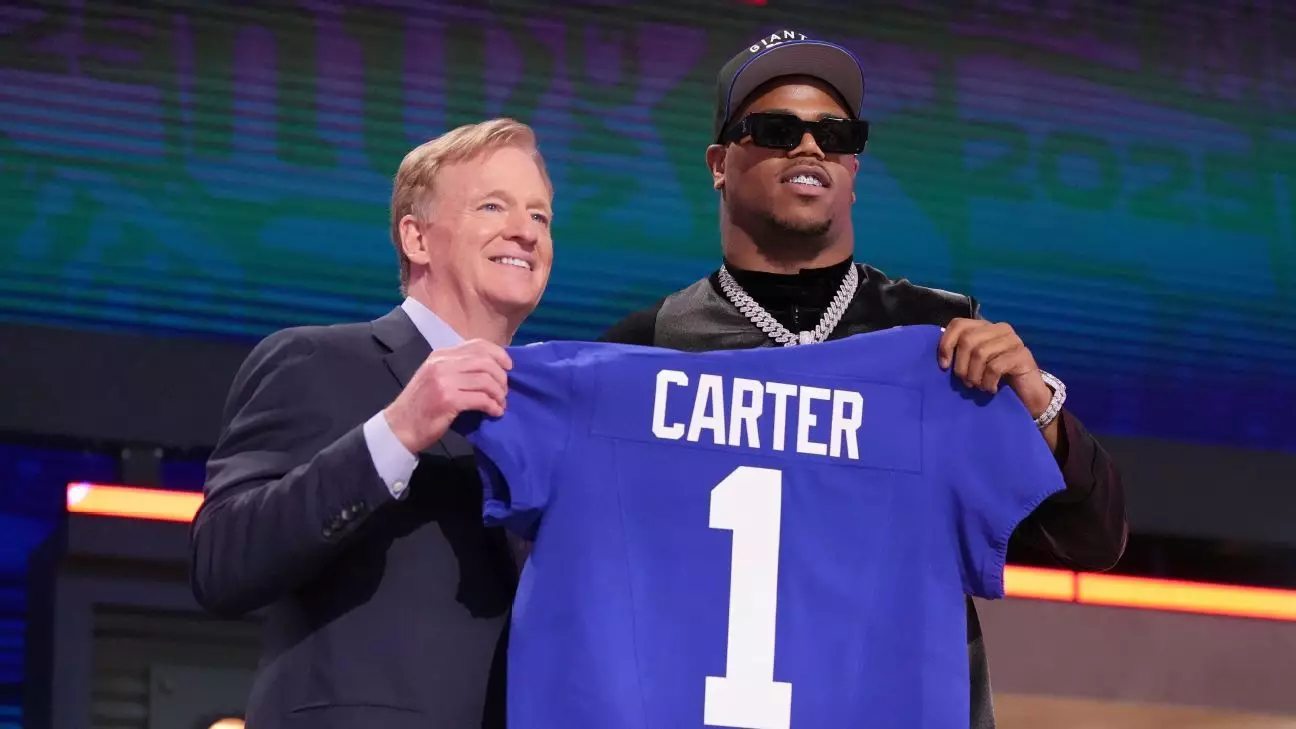The NFL Draft is a crucial milestone for aspiring football players, serving as a gateway to their dreams of professional football. Yet, it appears that this momentous occasion has not been spared from the interference of pranksters. Recent events surrounding New York Giants rookie Abdul Carter highlight a peculiar trend: prank calls plaguing young athletes during the draft. According to agent Drew Rosenhaus, Carter was the victim of one such call, allegedly from the Jacksonville Jaguars, claiming he would be selected second overall. This incident brings into focus the often overlooked, chaotic side of the draft process—one that can blur the lines between reality and jest at a time when players are most vulnerable.
Mixed Signals in a Stressful Environment
Imagine being on the verge of realizing a lifelong ambition. Amidst the whirlwind of hope, anxiety, and excitement, a call comes in telling you that your dreams are closer than ever. For Carter, this was a brief moment of false hope. Fortunately, he was able to discern the prank, as was his agent, who stressed that they did not even mention it to Carter’s family. This facet of the draft—the rampant uncertainty and emotional pressure—is compounded when deceptive messages infiltrate these pivotal hours.
This trend begs the question of ethics within sports culture. Should a player, who has put in years of hard work, really have to fend off phone calls that distort their experience? Crafting a narrative of impending success only to have it revealed as a hoax undermines the very essence of the draft. Yet, here we are, discussing how seemingly harmless pranks can cast shadows over what should be a celebratory event.
The League’s Response and Escalating Drama
The National Football League has not taken these incidents lightly. Following a separate prank call involving Atlanta Falcons’ defensive coordinator Jeff Ulbrich’s son, which caught former college star Shedeur Sanders in a web of confusion, the NFL imposed substantial fines. The Falcons were fined $250,000, and Ulbrich himself faced a further $100,000 penalty. Such swift actions illustrate the league’s desire to maintain the integrity of the draft process and to deter further prank-related disruptions. However, it raises the question: will financial penalties suffice in curbing this reckless behavior?
Furthermore, the league continues to investigate a series of prank calls that targeted various players. Young athletes like Mason Graham, Tyler Warren, Kyle McCord, and Chase Lundt were also swept up in this unfortunate trend. While the NFL aims for a protective stance, it’s imperative to examine the culture that allows for such pranks to proliferate during a sacred time in these individuals’ lives.
Reflections on a Changing Draft Landscape
The nuance of professionalism and respect for aspiring players seems to be dwindling in modern sports culture. While some may argue that pranking is all in good fun, it can have damaging implications on players already navigating a high-stakes environment. As the NFL Draft evolves, perhaps it’s time for a collective introspection among fans, athletes, and organizations alike. The lasting question remains: what does it say about us when we find amusement in the emotional tumult of others?
As the balance between levity and respect continues to fluctuate, the hope is that future drafts will be a sanctuary for dreams to flourish rather than a stage for prank-driven antics.


Napsat komentář